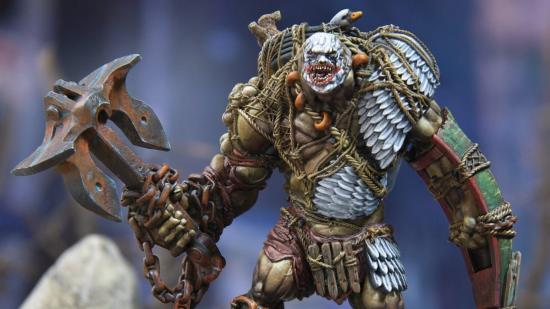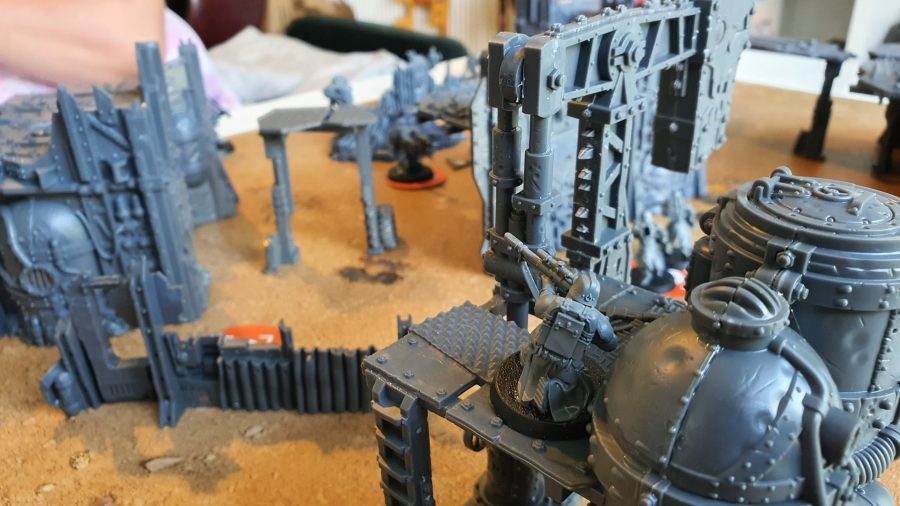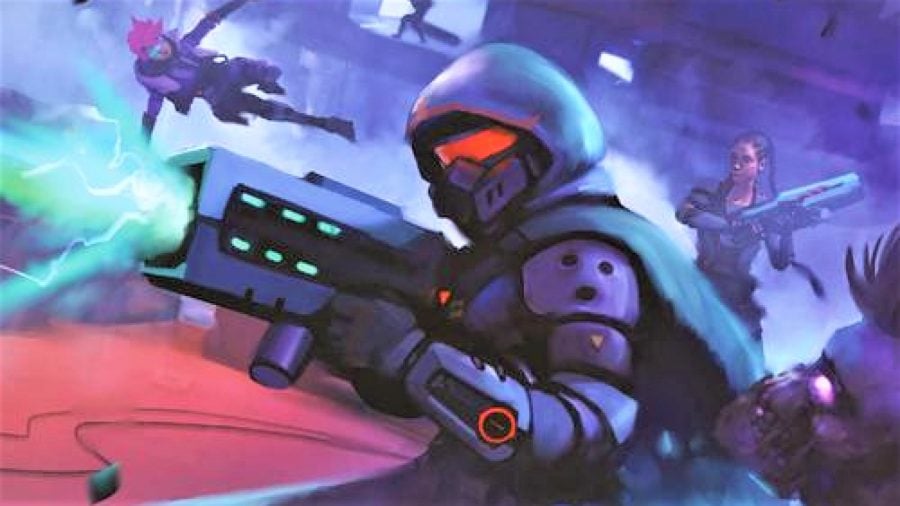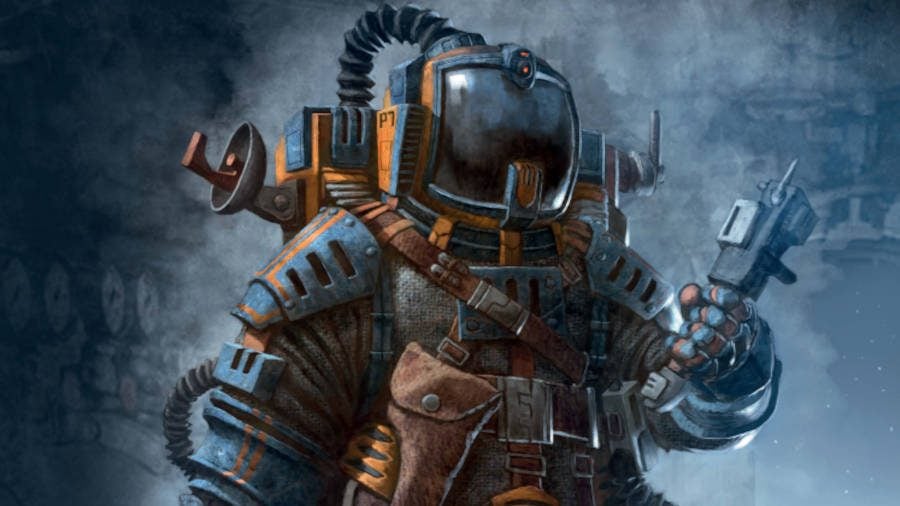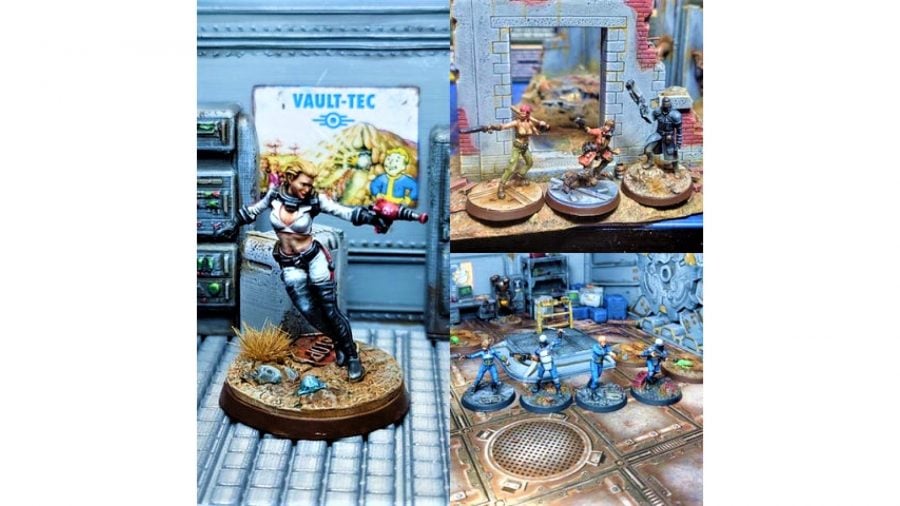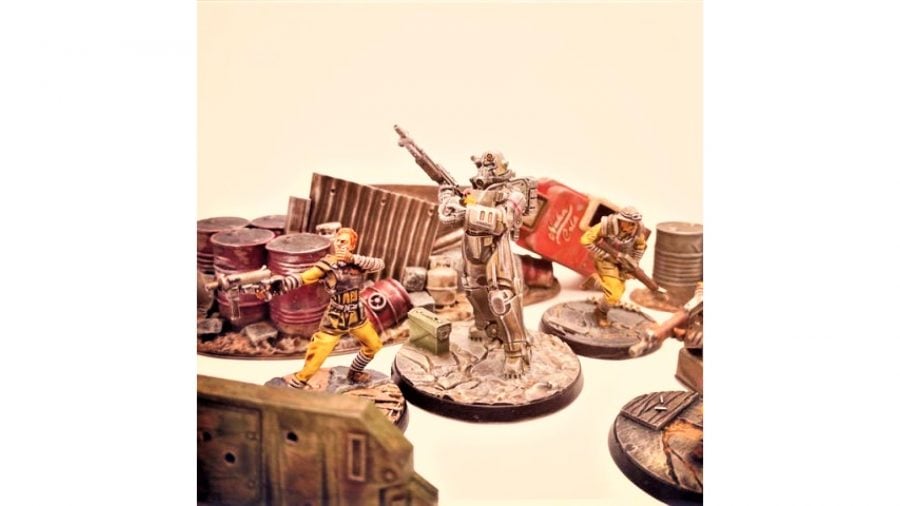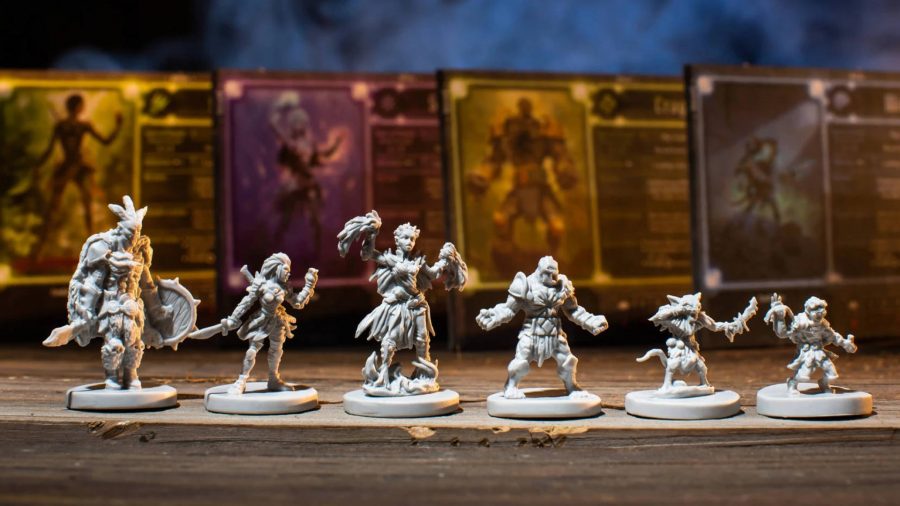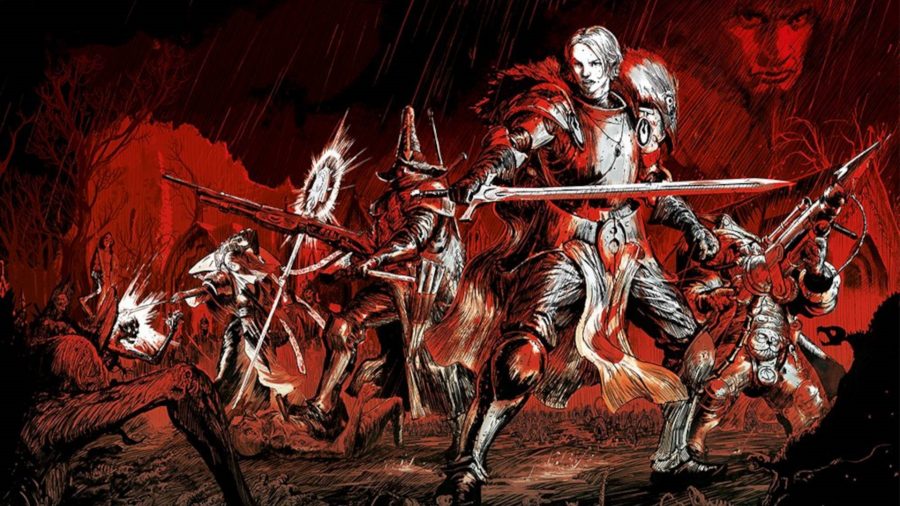Tabletop wargames have traditionally been – at least mostly – a competitive affair. Whether we’re re-enacting historical, alternate-historical, fantastical, or science-fictional battles with dice, hexes, chits, miniatures, tape-measures, or whatever, the common factors among wargamers’ favoured weekend activities are usually similar: the requirement for copious amounts of time, snacks, caffeinated drinks, and mental arithmetic – and the competitive driving force of making damn sure your forces win the day.
Such head-to-head conflicts do tell wonderful, emergent stories of their own – but they do rather tend to require a second person, over whose vanquished remains you can stand triumphant (or whose hand you can magnanimously shake, depending on what sort of wargamer you are – everybody knows some of both). And, in the past couple of years, with successive lockdowns in effect, and wargaming clubs closed, those opponents have been in shorter supply than ever before.
We adapted, of course. You can play any miniature wargame imaginable on Tabletop Simulator with the right mods, just as you can play any tabletop RPG you like over Roll20, if you set it up cannily. But, while the beating heart of competitive wargames – in-person games and tournaments – was out of action, the pandemic kickstarted an upswell in the popularity of solo and co-operative wargames, focused not on PVP, but on storytelling and adventure.
Stargrave – designer Joseph McCullough and publisher Osprey Games’ science fiction follow-up to 2015’s vastly popular narrative wargame Frostgrave – made a considerable splash when it launched in April 2021. When we wrote in March about McCullough’s in-the-works Napoleonic gothic horror wargame The Silver Bayonet, you lot went wild for it (it’s out now – you can read our full review here).
Even Games Workshop – for so long apparently in thrall to its large, vociferous lobby of competitive players – has evidently had narrative- and adventure-focused wargaming on the brain the past couple of years, with the new editions of both Warhammer 40k and Kill Team pivoting to include much more fleshed-out narrative campaign modes. That’s before we’ve even mentioned the masses of resources GW poured into its tragically aborted Warhammer Quest: Cursed City – a lovingly-wrought co-operative adventure wargame in a box.
So it’s little surprise that UK-based Modiphius Entertainment, publisher of the Achtung! Cthulhu tabletop RPG and miniatures, Bethesda-licenced miniatures games The Elder Scrolls: Call to Arms and Fallout: Wasteland Warfare, and now the official Fallout tabletop roleplaying game, is very much in on the action.
RPG-lite
The firm’s latest entry is Five Parsecs From Home, a self-described “solo adventure wargame” and “RPG-lite” version of the usual miniatures experience. You’ll create and equip your own party of named characters (just like a tabletop RPG) before jetting off in your customised starship to complete individual missions, which you’ll then play out on the tabletop with whatever sci-fi miniatures you happen to have on hand. One twist, however, is that the battle maps, campaign missions, towns, and even starship travelling are all procedurally generated using a generous amount of randomising tables.
Emergency: Why tabletop wargames tell better stories than RPGs
“I didn’t want to just release a rule set that’s just another set of battle rules,” Modiphius’ founder and head honcho Chris Birch tells Wargamer.
“That’s why we did Five Parsecs, because its base, the whole procedural campaign generation, is really clever and unique.”
For narrative wargamers like Birch, what sets something like Five Parsecs From Home apart from a Warhammer 40k or an Age of Sigmar is having storytelling mechanics as the primary consideration of the game’s design, not as secondary, ‘bolt-on’ alternative game rules.
Here, features like assigning unique characteristics and development to models, linking games with choices and consequences, allowing exploration, world building and story events between battles, and so forth, are fundamentals, not optional extras. The idea is to demote (or remove entirely) the driving motivation of reigning victorious over your mate four feet opposite you, and replace it with the desire to advance your game’s storyline; to discover a teammate’s mysterious origin; to complete a complex and dangerous treasure-hunting side mission; to save up to buy your party its own warship – whatever fires your imagination.
Modiphius has labelled its own version of this concept “adventure wargaming” – which Birch defines loosely as a wargame where the formal victory conditions may still be present – but they’re not the sole (or even the most enticing) goal that the game is offering you to pursue.
“We have a bit of a joke in the office about a frog in the well,” Birch explains cryptically, with a grin. “It’s that a wargame scenario should have a frog in a well, and it should be more fun to go and get the frog out of the well than to follow the actual objective to win the battle.”
Acid test: Why we need a TTRPG about 60s counterculture
“What I’m pushing for is that all the games that we do are based on the premise that the story has got to be more important than the battle,” says Birch.
“I want to make games where two people can play together and have an effing amazing time together, not against each other.”
“There’s a million companies who do great games where you play battles against each other,” he explains. “I want to make it so much fun to lose the battle, because I found out more about the history of my character.”
Lockdown gaming?
The current spate of games thus shifted toward the roleplaying end of the spectrum, and away from the head-to-head wargaming end, has certainly been further fueled by covid-induced isolation, according to Birch – but the subgenre’s burgeoning success has many fathers.
“Long before covid, there were plenty of wargamers who found their friends had moved away, or they’ve got a busy life or family… you’ve got to figure out a way to play on your own,” he says.
“The advent of co-op board games, I think, helped transform the market, because it brought in all this interesting AI,” Birch adds, “and it was only a matter of time before you started having solo and co-op-friendly wargames”.
At press time, we’re in the dying days of August 2021, and – at least in the USA and UK, though not in much of the rest of the world, especially the global South – covid restrictions are becoming ever looser. With tournament scenes reigniting, will solo and co-op games see a downturn?
“Of course people are gonna want to get back around a table with their friends,” says Birch.
Stay on target: Why X-Wing is the best gateway wargame
“But, as much as we’re all going to go ‘yeah, I can’t wait to get playing with my mates’, we’re also then going to think ‘oh yeah, we’ve got family plans’, and life is going to get in the way again, just like it did before covid.”
“So I don’t think solo is going to go away, because it’s just a common feature of modern day life.”
And in any case, story-led and co-operative wargaming doesn’t have to be confined to private, at-home games – not in Birch’s vision, anyway.
“My challenge to our team is: tournaments are traditionally versus games, so let’s make an in-store co-operative day,” he says, enthusiastically.
Mini masterpiece: Read our guide to painting miniatures
“It’s so much more exciting than a versus tournament; stores will be like ‘I’ve got to run that, I’ll get more people, more money, and more sales, and everyone will be really happy.’”
Hmm. Traditional tournament games, however formulaic, are directed, energetic, and driven by competition. Narrative games, by comparison, tend to take time, peace and quiet, lots of scribbling in notebooks, and lots of Hobnobs. I was sceptical. Would that actually work, I ask him?
“I like hard challenges,” he says.
This article was first published on August 27, 2021.
